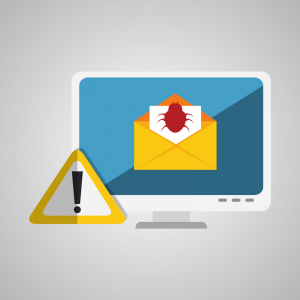
It isn’t often that victims of crimes are socially required to take the blame from the criminal - but in the case of cybercrime, it’s the unfortunate truth. No matter the gravity of the cyber attack, society blames the victim (and we often blame ourselves, too). Who’s fault is it when Target gets compromised and thousands of customers’ credit cards are stolen? Target’s. Who’s fault is it when your computer freezes and asks you to call a Microsoft number to fix it? Yours.
It’s time to stop hoping and start actively working to protect yourself from cybercrime. We’ve created this guide to help walk you through cybercrime prevention. Read on to better educate yourself about these crimes and how you can prevent yourself from becoming a victim.
What is cybercrime?
Cybercrime, at its most basic definition, is criminal activities carried out by means of computers or the internet. It is sometimes referred to as cyber attacks. It is constantly changing, just like technology, and is impossible to totally keep up with. By the time anti-virus software has been updated to include the newest virus attacks, cybercriminals have already moved on to something else.
The most common types of cybercrime are viruses and social engineering. We will discuss both in this guide, as well as ways to prevent them.
What is the purpose of cybercrime?
Typically, cybercriminals are after money. While there are the occasional chaos seekers and harassers, cybercrime is a booming business -- and there is plenty of money to be made in fraud and identity theft.
Who is the target for cybercrime?
We hear about big corporations becoming victims of cyber attacks in the news, but more than 80% of cybercrimes are committed against small businesses. Small businesses are easier targets because they are usually left unprotected (or have limited security). Plus, the cybercriminals are able to attack thousands of small businesses all at once with ease.
Types of cybercrimes and how to prevent them:
Viruses
Viruses are tiny computer programs that spread by infecting files and drives and then making copies of themselves. They work similarly to human viruses in that way. They are almost always spread through emails -- although certain downloads on your computer or your mobile device can contain viruses as well.
To avoid accidentally installing a virus onto your computer, do not open any attachments in your email unless you are expecting it. Did your boss send you a customer invoice and you aren’t in accounting? Don’t open it. Did FedEx send you a shipping tracker link when you didn’t order anything? Don’t click it. Did you get a resume for a position your company filled 6 months ago? Don’t open it.
If you’re at all unsure about something, don’t open it. Call the sender directly or contact your IT support for assistance.
Spam Emails
Spam emails are any unsolicited commercial emails. Of course, spam emails are usually legitimate and won’t give you a virus of any kind. They’re just annoying advertisements and bids for your business. However, they can also be used by cybercriminals to embed malicious links designed to install a virus on your computer.
It’s best to review your spam emails with a finger over the delete button. Unless you’re explicitly awaiting a coupon or company newsletter - it’s best to delete all of these emails as soon as they come in.
Social Engineering
Possibly the most difficult cybercrime to prevent is social engineering. Social engineering can be referred to as human hacking. While this is still a cybercrime because it utilizes the internet (and most often, email), social engineering is not designed to infiltrate a machine. Therefore, security measures like anti-virus and firewalls have zero effect.
This is where attacks like the IRS scams and the Microsoft Support scams come into play. The cybercriminals use psychology to prey on their victims. It’s important to be aware of your situation, and be overly cautious when divulging personal information. Be wary when clicking on anything that looks urgent or worrying. Cybercriminals are hoping that if they can scare you into believing your computer is broken (or your credit card has been stolen), you will play right into their trap.
You will save yourself a lot of problems by calling your IT support first.
Cybercrime prevention is more than just being careful online, though. Many attacks are silent. The best protection is a well-rounded business continuity plan. With the combined security of a business level firewall, strong anti-virus, a hybrid backup solution, and your vigilance -- your company should remain productive and healthy.
Hopefully, you’ve learned a bit about cybercrime prevention and will be able to protect yourself in the future. For more information, take a look at this article.



